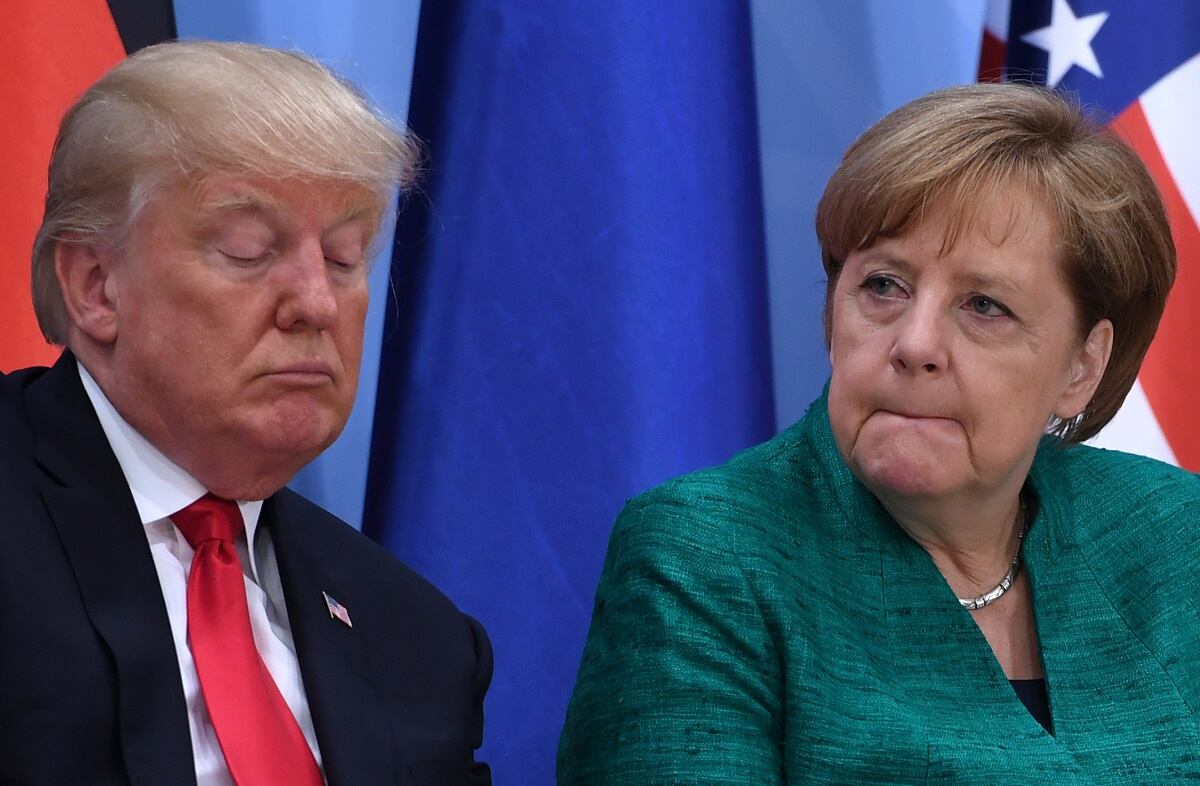COLOGNE, Germany – Chancellor Angela Merkel’s Cabinet has approved a draft federal budget considered so insufficient for the armed forces by Defence Minister Ursula von der Leyen that she submitted a formal note of protest along with her vote.
The unusual move pits the defense chief, a member of Merkel’s Christian Democratic Union, against finance minister and vice chancellor Olaf Scholz of the Social Democratic Party, who crafted the budget primarily with an eye on domestic measures and the premise of incurring no additional debt.
The defense ministry stands to get €38.5 billion in 2018, which is roughly €1.5 billion more than last year, and €41.5 billion in 2019. That trajectory would bring Germany’s share of defense spending measured against gross domestic product to 1.28 percentage points in the next few years, Scholz told reporters in Berlin.
RELATED

Defense ministry leaders believe they have a requirement for a plus-up of €12 billion by 2021. The money is needed to fix gaping equipment shortfalls and would underpin Germany’s goals in a militarily stronger Europe, the argument goes.
But Scholz’s budget plan only includes upwards of five billion Euros by then, and more than half of that would go toward covering personnel cost increases, according to officials. In response, German media reported that the ministry already was preparing a list of program cancellations involving European allies, including a German-Norwegian submarine cooperation.
Critics panned the budget proposal today, arguing it stands in stark contrast with Germany’s defense and foreign policy ambitions. Given the low availability of much of the Bundeswehr’s equipment, even the prospect of €12 billion more over four years would be the minimum to get problems under control, they said.
“Germany isolates itself with such an emphasis on domestic issues,” said Christian Mölling, analyst with the German Council on Foreign Relations. “We see here the left wing of the SPD pushing its positions.”
Finance minister Scholz today defended the outlook for defense, arguing that the Bundeswehr wouldn’t be able to spend more than is envisioned in the annual increases anyway. “It’s not like you can just go shopping for these things,” he said, referring to the long lead times and bureaucratic processes governing weapons programs.
Scholz even borrowed a military jargon term in his press conference today. Avoiding deficit spending in the budget would make the country more “combat-capable” in times of economic crises, he said.
Marcel Dickow, analyst with the German Institute for International and Security Affairs, argues that funds beyond the increases Scholz has proposed would do nothing to solve the Bundeswehr’s “structural” problems.
“It’s true that equipment problems and shortages must be addressed,” he said. “But the failures are grounded in slow acquisition processes and bad management.”
Exactly where Chancellor Merkel falls in all of this is still unclear. Her spokesman Steffen Seibert today sought to downplay the prospect that the current budget proposal would fail to get Germany even close to the NATO-wide spending target of 2 percent of GDP by the middle of the next decade.
“I don’t see the contradiction,” he told reporters in Berlin. “I see the commitment to the NATO goal and the necessity to move in that direction. We are on our way there.”
Negotiations on the budget are expected to continue in the next two months. A final measure will go to parliament for consideration in early July.
Sebastian Sprenger is associate editor for Europe at Defense News, reporting on the state of the defense market in the region, and on U.S.-Europe cooperation and multi-national investments in defense and global security. Previously he served as managing editor for Defense News. He is based in Cologne, Germany.








